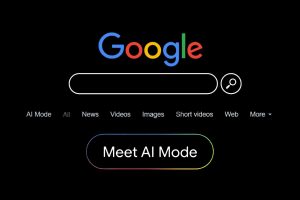In today’s fast-paced digital landscape, marketing professionals are continually searching for innovative ways to reach their target audience effectively.
Traditional approaches to customer targeting, relying on demographics and segmentation, often fall short in addressing the evolving dynamics of consumer behavior. This is where artificial intelligence (AI) steps in, fundamentally redefining the way we approach customer targeting in marketing.
The Growing Impact of Artificial Intelligence in Marketing
Artificial intelligence (AI) has transcended its status as a mere buzzword and has firmly established itself as a transformative force within the marketing realm. Its prowess in processing immense data volumes, recognizing intricate patterns, and rendering real-time decisions has elevated AI to the status of an indispensable tool.
In a world inundated with information, AI’s capacity to swiftly sift through data and unveil actionable insights has reshaped marketing strategies. It has become the linchpin for precision targeting, delivering content to the right audience at the right moment, heralding a new era of efficiency and effectiveness in the marketing landscape.
The Necessity of Precise Customer Targeting
In today’s dynamic and data-driven marketing landscape, the imperative for precise customer targeting has never been more evident. Traditional demographic-based approaches, once considered adequate, now fall short of understanding the nuances of individual consumer behavior.
As consumers’ preferences evolve and digital channels proliferate, the demand for pinpoint accuracy in audience engagement has surged. Niche and personalized marketing strategies are essential to cut through the information clutter. The necessity for precise customer targeting is no longer an option but a fundamental requirement.
To meet this challenge, artificial intelligence emerges as the game-changer, promising unparalleled precision and responsiveness in delivering the right message to the right audience.
Understanding Customer Targeting
The Traditional Approach
-
Demographics and Segmentation
The traditional approach to customer targeting, entrenched in marketing history, revolved around demographics and segmentation. This method involved categorizing the audience based on age, gender, location, income, and other broad categories. While it served as a rudimentary framework for understanding customer groups, it had a notable limitation—it failed to capture the intricate nuances of individual preferences and behavior.
In essence, it painted a broad brushstroke across the canvas of diverse consumer interests, often resulting in generic marketing strategies that overlooked the unique desires and motivations of individual customers. This historical approach laid the foundation for the evolution towards more precise and data-driven methods in the pursuit of effective customer targeting.
-
Manual Data Analysis
Another pillar of the traditional approach to customer targeting was manual data analysis. This method entailed the painstaking process of sifting through data manually to gain insights into customer behavior and preferences. While it provided valuable information, it had its drawbacks, notably its time-consuming nature.
Marketers would laboriously examine data sets, trying to discern patterns and trends, all while being constrained by the sheer volume of data. One significant limitation of manual data analysis was its inability to keep pace with rapidly changing consumer preferences.
In today’s fast-evolving digital landscape, consumer behavior can shift in the blink of an eye. Manual analysis struggled to provide the agility needed to respond to these dynamic changes.
As a result, it became evident that a more efficient and responsive approach was essential to keep up with the ever-shifting sands of the market. This realization set the stage for the adoption of artificial intelligence, which offered a solution to these challenges through automation, real-time data processing, and the ability to uncover hidden patterns in data.
The Limitations and Challenges
-
Data Overload
In today’s digital landscape, data overload has emerged as a significant challenge for marketers. The proliferation of digital touchpoints has inundated them with vast datasets, making the digital ask of extracting meaningful insights an arduous endeavor.
-
Changing Customer Behavior
Customer behavior is anything but static. It continually evolves in response to technological advancements and shifts in societal dynamics. This dynamic nature necessitates an agile approach to marketing that can adapt to the ever-changing landscape.
The AI Advantage
Machine Learning and Predictive Analytics
-
Uncovering Hidden Patterns
Machine learning, a subset of artificial intelligence, stands out as a powerful tool for uncovering concealed patterns within extensive datasets. Its capacity to identify intricate trends and correlations surpasses human analytical capabilities.
By delving into large volumes of data, machine learning can unveil insights that would remain undiscovered through manual analysis. This ability to decipher hidden patterns equips marketers with a deeper understanding of consumer behavior and preferences, ultimately refining targeting strategies and enhancing campaign effectiveness.
-
Real-time Data Processing
Real-time data processing, especially in the realm of mobile app marketing, stands as a hallmark of AI’s contributions to the field. Artificial intelligence excels at swiftly and continuously processing data as it flows in through mobile apps, empowering marketers with the capability to make instantaneous decisions and fine-tune their campaigns on the fly.
This real-time responsiveness ensures that marketing efforts within mobile apps align seamlessly with the ever-evolving behavior of users and dynamic market dynamics. It’s the agility that AI brings to the table, enabling mobile app marketers to adapt their strategies swiftly and maximize the impact of their campaigns.
Natural Language Processing (NLP)
-
Gaining Insights from Textual Data
Natural Language Processing (NLP), a facet of artificial intelligence, offers a game-changing approach for marketers to glean profound insights from textual data sources. It empowers marketers to analyze and understand the sentiments, opinions, and intentions expressed within textual content, including social media conversations and customer reviews.
NLP algorithms decipher the intricacies of language, enabling marketers to discern trends and sentiments, and subsequently tailor their strategies to resonate with customer preferences. This transformative capability helps refine communication and decision-making, enhancing the overall effectiveness of marketing campaigns.
-
Enhancing Customer Communication
Natural Language Processing (NLP) has emerged as a potent tool for enhancing customer communication in the digital realm. This technology equips chatbots and virtual assistants with the ability to not only comprehend but also respond to customer inquiries with remarkable effectiveness.
By grasping the nuances of language, NLP-driven chatbots engage in more natural and context-aware conversations. They provide timely and relevant responses, elevating customer interactions to a level of sophistication previously unattainable. NLP has revolutionized customer support, enabling businesses to deliver a seamless and personalized communication experience.
Personalization at Scale
Tailored Product Recommendations
-
Collaborative Filtering
In the realm of personalization at scale, tailored product recommendations have become a cornerstone of modern marketing strategies. At the heart of this approach lies collaborative filtering, an advanced machine-learning technique. Collaborative filtering excels in offering individualized product suggestions by delving into users’ behaviors and preferences.
By analyzing their interactions, purchase history, and expressed interests, it discerns patterns and associations that might elude human analysis. This method enables businesses to provide customers with precisely what they desire, resulting in a more satisfying shopping experience and higher conversion rates.
-
Content-Based Filtering
Content-based filtering stands as another pivotal element in personalization at scale. This technique hinges on the analysis of product attributes and their alignment with user profiles.
By evaluating the intrinsic characteristics of products and understanding user preferences, content-based filtering identifies matches that align with individual tastes. This approach enriches the customer experience by presenting items that harmonize with their unique preferences, ultimately contributing to higher customer satisfaction and engagement.
Dynamic Content Generation
-
Adaptive Email Campaigns
Dynamic content generation, underpinned by artificial intelligence, paves the way for adaptive email campaigns. These campaigns are characterized by their ability to tailor content to each recipient’s unique interests and preferences.
By harnessing AI, businesses can automatically customize the content within emails, ensuring that the information, products, or offers presented align closely with what each individual recipient finds most relevant. This level of personalization enhances the effectiveness of email marketing, resulting in higher engagement rates and increased conversion opportunities.
-
Customized Website Experiences
Modern websites are equipped to deliver personalized experiences by leveraging AI. They have the capacity to dynamically adapt content and layout to cater to the distinct preferences of individual visitors.
This level of personalization ensures that each visitor encounters a website tailored to their interests and needs, enhancing user engagement and satisfaction. As a result, businesses can deliver more relevant content, drive longer site visits, and ultimately increase the likelihood of conversions, all while providing a superior browsing experience.
Ethical Considerations
-
Data Privacy and Consent
The ethical implications surrounding AI in marketing extend to the vital realms of data privacy and user consent. As artificial intelligence collects and processes personal data to fuel its insights and decision-making, profound concerns arise about safeguarding individuals’ privacy.
Protecting sensitive information and ensuring compliance with data protection regulations are paramount. Equally crucial is the imperative to obtain clear and informed user consent for data usage, establishing a foundation of trust and transparency between businesses and their customers. These ethical considerations underscore the need for responsible and lawful AI utilization in marketing.
-
Bias and Fairness in Algorithms
Ensuring fairness in AI algorithms is critical to prevent bias and discrimination in customer targeting. However, it’s crucial to navigate the ethical considerations that come with the power of AI, ensuring transparency, fairness, and data privacy in the pursuit of redefining customer targeting.
Conclusion
In sum, artificial intelligence has not only redefined customer targeting; it has elevated marketing to a new realm of precision, personalization, and responsiveness. As businesses navigate this transformative journey, they must tread carefully, preserving the trust and confidence of their audience while harnessing the power of AI to deliver truly exceptional marketing experiences.
AI’s ability to uncover hidden patterns within voluminous datasets and process information in real-time transcends human capabilities. It delivers personalized experiences at scale, from tailored product recommendations to adaptive email campaigns and customized website experiences.












